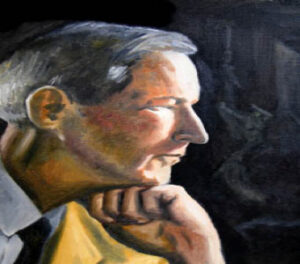

Is history a liberal arts degree? History is one of the most important of all the liberal arts disciplines and degree fields. It provides raw information that gives important context to other liberal arts disciplines, from the arts to religious studies to political science. Viewing any subject in a historical perspective is an inherent exercise of the liberal arts style of education.
The idea of a liberal arts education only exists in the first place because of historical study. The reason that liberal studies are considered classical is because they rose in antiquity,becoming a foundation for the modern university system, drawing from the knowledge and disciplines that scholars picked up from the ancient Greeks and Romans. History and the liberal arts simply can’t be separated.
Herodotus, sometimes called the Father of History, basically invented the systemic study of history and the causes and effects of historical events way back in 440 B.C.
Much of what we know of the Greco-Persian wars is due to his scholarship and recording. Livy, a turn-of-the-epoch Roman historian, wrote the History of Rome from which medieval scholars have learned so much about the early Roman empire.
You might say that history is the part of liberal arts that almost all other liberal arts disciplines rest on. Although it’s not listed as one of the 7 traditional liberal arts, it almost doesn’t have to be—most of those 7 subjects require some knowledge of history, or build on historical studies, in order to absorb. For instance, if you’re learning about rhetoric, you’re probably studying historical writings and instances of persuasive speaking that have come to define effective composition and delivery.
History Was Once Lost in Antiquity Before Returning As a Liberal Arts Discipline
The return of history as a liberal art separately is a relatively modern innovation, however.
Sometime after Livy, history as a means of understanding gave way to history as a dry record of events. The pressures of tyrants and conquerors to control the historical record, the power of flattery and influence among the learned, all may have created conditions where it was safer and more lucrative to set down the indisputable facts rather than engage in the kind of analysis that characterizes the historical approach.
These chronicles list battles and their victors, kings and their usurpers, the dates of ecclesiastical appointments, and lots more important information. But they do not apply history as an art, so from the beginning it just didn’t make the cut to be included among the liberal arts.
Folding History Into the Liberal Arts
 Jacque Barzun, a historian and professor at Columbia University who conducted that school’s Great Books course in the liberal arts, dated the inclusion of history into the liberal arts to 1756, the year Voltaire authored the Essay on the Manners and Customs of Nations. Barzun’s contention is that prior to that point, historiography existed primarily as a chronicle of events. As a bare record of facts, chronicles were valuable, but the subject of history today involves greater analysis aimed toward understanding the context of historical figures and events.
Jacque Barzun, a historian and professor at Columbia University who conducted that school’s Great Books course in the liberal arts, dated the inclusion of history into the liberal arts to 1756, the year Voltaire authored the Essay on the Manners and Customs of Nations. Barzun’s contention is that prior to that point, historiography existed primarily as a chronicle of events. As a bare record of facts, chronicles were valuable, but the subject of history today involves greater analysis aimed toward understanding the context of historical figures and events.
It seems obvious now, other liberal arts disciplines simply can’t be studied without that sort of historical analysis. Imagine trying to understand literature by engaging only with the tattered remains of Shakespeare’s folios, with nothing of the historical context of the Lord Chamberlain’s Men, the playing company he worked for. Imagine trying to grasp philosophywith only Das Kapital in your hands, and no understanding of the Industrial Revolution or the class systems of Europe.
History has always been key in liberal studies as a source of perspective for those studies.
History Degrees Are a Key Piece of The Liberal Arts Pipeline in University Education Today
History degrees are packed full of the kind of broad investigation and analysis that all liberal arts are known for. A degree in history will include a curriculum that is chock full of reading. Students will be expected to:
- Become familiar with languages dealing with their specialization in historical study
- Review politics and political systems impacting the era in which they are interested
- Understand the state of art and literature and how it reveals information and attitudes
- Grasp the scientific and environmental impacts on lives and events of the era
That’s just the sort of wide-ranging, interdisciplinary study you would expect of a liberal arts degree. History departments draw on expertise and publications from many other fields of study in order to develop a clear understanding of their subject.
History degrees also offer the kind of flexibility that you expect in liberal studies programs. History degrees come with a jaw-dropping variety of minors or concentrations that include both other liberal arts as well as professional studies or sub-categories of history itself.
- Art history
- Asian studies
- Medical and scientific history
- Musical history
- History of philosophy
- History of the Americas
Advanced students in history degree programs might zoom-in even closer, examining a particular type of historical artifact or only dealing in particular periods of history.
Whether you specialize by earning a history degree or take a dive into one of the other humanities, you will find that history is an important and lasting part of the liberal arts.






